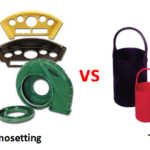Finding the right car insurance policy will mostly depend on certain factors, including the country you live in. For instance, yearly auto insurance rates in Canada cost customers between $1,300 and $1,800. However, the actual amount you pay might also vary based on your deductible.
With so many terms and factors, trying to understand car insurance can often make your brain feel like it’s doing acrobatics in a haunted house. Also, the term ‘car insurance deductible’ doesn’t exactly inspire feelings of clarity and simplicity.
If you’re one of the many that don’t know what this means, keep reading. It’s time to demystify this confusing concept and give you all the information on car insurance deductibles you need to navigate the world of car insurance like a boss.
Definition of Car Insurance Deductibles
Every type of insurance includes having to pay for a deductible before they can help you with payments. The same goes for car insurance. When you get in an accident, you must pay your chosen deductible before your insurer covers any damage to your car or to your health.
There are two main categories of deductibles. The insurance policy includes a deductible that is applicable for each incident, requiring payment of the deductible amount upon filing a claim. Moreover, there’s an annual deductible that you need to pay only once a year, irrespective of the count of claims filed.
Also Read:
- Top 5 Best Digital Tire Pressure Gauges
- Top 5 Best Jump Starters for Cars
- Top 5 Best Fire Extinguisher for Car
How Does a Car Insurance Deductible Work?
Now that we’ve covered the basics, let’s see how the deductible works. Let’s set a scene. You get in an accident and the damage costs $3,000. If you’ve settled on a $500 deductible, you’ll first need to pay that out-of-pocket, in order for the insurer to cover the remaining $2,500. It’s like when you and your buddies order a pizza and everyone has to chip in their share before digging in.
Additionally, there is also a situation when the deductible you choose impacts the total cost of your vehicle insurance. This happens when you choose a higher deductible. If you choose a higher deductible, your premium may decrease as you are assuming more risk.
Similarly, if you opt for a lower deductible, your insurer might assume greater risk and decide to raise the price of your monthly premium payments. It’s similar to balancing on a tightrope, and you must discover the appropriate equilibrium for your specific circumstances.
Pros and Cons of High vs. Low Car Insurance Deductibles
For individuals with limited financial resources, opting for a high deductible plan may appear attractive as it can potentially reduce their monthly premium. But in case of an unfortunate event, you will have to bear a higher cost initially before your insurance coverage comes into effect. That implies you’ll need to have a sizable sum in savings to pay that expense, or you risk getting into financial trouble.
On the flip side, even though a lower deductible means you won’t have to pay a large sum if you get in an accident, it could still potentially raise your monthly premium payment. Many individuals like the idea of not having to pay a huge amount in case they get in an accident so they choose that option. However, in case you have a track record of driving safely and seldom encounter accidents, a low deductible might not be essential.
So, which should you go with? Just like choosing a premium, it depends on your individual situation. Will you be able to handle more potential risk in order to save up on costs or are you willing to pay a bit more each month to have peace of mind? To make that decision, you’ll need to do some careful consideration and really think about the choice you make.
How to Choose a Car Insurance Deductible?
So, how do you choose the right car insurance deductible for you? Here are some key factors to take into consideration to be sure you’re making the right choice:
- Consider your monthly budget. See if you can afford a higher deductible in exchange for a lower premium.
- Evaluate your driving habits. Are you a cautious driver who rarely gets into accidents, or do you have a lead foot and a history of fender benders?
- Think about your overall risk tolerance. Would you prefer to opt for a higher deductible to possibly reduce your premiums, or do you prioritize having greater financial protection in case of unexpected events?
Final Thoughts
Hopefully, we’ve helped you get a pretty good idea of what a car insurance deductible is, how it works, and which one might be right for you. Remember, choosing the right deductible amount can be a balancing act between your monthly budget and your overall risk tolerance. However, by conducting some research and being cautious, you will easily find the ideal car insurance deductible that suits your needs.








